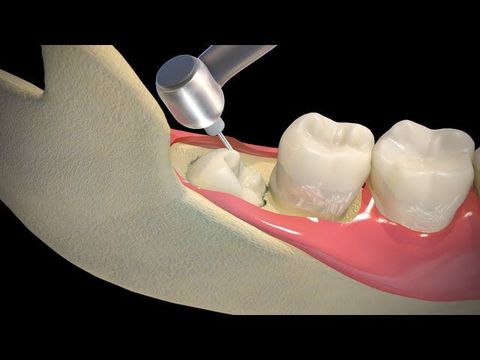A Complete Guide to Oil Cleaners: Key Facts, Details, and Practical Tips
Oil cleaners are essential tools used to remove contaminants from oils found in engines, hydraulic systems, manufacturing equipment, and industrial processes. Oil naturally collects impurities such as dust, metal particles, moisture, and chemical byproducts as it circulates through machinery. These impurities can reduce the effectiveness of oil, causing wear, inefficiency, and equipment failure.
Oil cleaners exist to extend the lifespan of machinery, improve lubrication quality, and maintain operational performance. They come in many forms, including centrifugal cleaners, vacuum dehydrators, magnetic filtration systems, and mechanical filters. Their design allows them to target specific contaminants based on particle size, moisture content, or chemical composition.
In both industrial and household environments, oil cleaners help ensure equipment remains reliable and safe, making them an important part of maintenance and environmental care.

Importance
Oil cleaners matter today because modern industries rely heavily on machinery that operates under high pressure, speed, and temperature. Clean and well-maintained oil allows critical systems such as turbines, engines, compressors, and hydraulic equipment to function efficiently.
Oil cleaners are important for several reasons:
-
Improved Equipment Reliability
Removing contaminants significantly reduces wear and mechanical damage. -
Environmental Protection
Cleaner oil lasts longer, reducing waste and the need for disposal. -
Energy Efficiency
Cleaner lubrication reduces friction, enhancing system performance. -
Safety Benefits
Well-maintained equipment is less likely to malfunction or overheat.
Oil cleaners benefit various groups, including manufacturing plants, automotive users, aviation technicians, construction companies, and energy sectors. They help reduce breakdowns, extend the lifespan of oil and equipment, and support sustainable industrial practices.
Recent Updates
The oil cleaning industry has seen several advancements between 2024 and 2025, reflecting technological progress and environmental priorities.
-
Advanced Sensor Integration (2025)
Modern oil cleaners now incorporate real-time sensors that measure contamination levels, moisture, and particle count. These sensors support predictive maintenance and reduce the risk of sudden failures. -
Eco-Friendly Filtration Materials (2024)
Manufacturers have introduced biodegradable filter media to align with global sustainability goals. -
Hybrid Cleaning Systems (2025)
New models combine mechanical filtration with centrifugal and magnetic separation, increasing efficiency across multiple oil types. -
Improved Moisture Removal Technologies (2024)
Vacuum dehydration units now remove water more efficiently, protecting sensitive hydraulic and turbine systems. -
AI-Supported Monitoring Platforms (2025)
Artificial intelligence tools analyze oil quality trends, predicting when equipment requires cleaning, maintenance, or oil replacement.
These updates reflect the growing demand for clean energy solutions, precision manufacturing, and environmentally responsible operations.
Laws or Policies
Oil cleaners are influenced by regulations designed to protect equipment, workers, and the environment. While specific laws vary by country, several commonly applied policies include:
-
Environmental Waste Management Regulations
Many countries enforce strict rules regarding oil disposal and recycling. Cleaners help reduce waste, supporting compliance with these laws. -
ISO Standards for Oil Cleanliness
Standards such as ISO 4406 define acceptable contamination levels, guiding industries on oil quality requirements. -
Occupational Health and Safety Guidelines
Agencies like OSHA (United States) require safe handling and monitoring of equipment and lubricants to minimize workplace hazards. -
Industrial Equipment Compliance Rules
Machinery used in aviation, transportation, and manufacturing must meet cleanliness standards that directly relate to oil quality. -
Green Industry Programs
Several governments encourage companies to adopt eco-friendly maintenance practices, including extending oil life through efficient cleaning.
These policies help ensure safety, environmental protection, and long-term reliability in industrial processes.
Tools and Resources
A range of helpful tools, apps, and platforms support the understanding and use of oil cleaners. These include:
-
Oil Analysis Apps
Mobile tools that track viscosity, contamination levels, and equipment performance. -
Online Oil Cleanliness Calculators
Platforms that estimate particle concentration and recommend filtration levels. -
Equipment Monitoring Software
Real-time dashboards for tracking lubricant health and predicting maintenance needs. -
Technical Manuals and Standards
Resources such as ISO guides and engineering handbooks that explain oil quality requirements. -
Training Courses
Online courses on lubrication management, hydraulic maintenance, and contamination control.
These tools make it easier for technicians, engineers, and equipment operators to maintain oil quality efficiently.
Example Table: Types of Oil Cleaners and Their Main Functions
| Oil Cleaner Type | Primary Function | Suitable Applications |
|---|---|---|
| Mechanical Filter | Removes solid particles | Engines, gearboxes, hydraulic systems |
| Centrifugal Cleaner | Uses rotational force to remove debris | Heavy machinery, industrial systems |
| Vacuum Dehydrator | Removes moisture and dissolved water | Turbines, transformers, hydraulic units |
| Magnetic Cleaner | Captures metallic particles | Manufacturing, automotive systems |
| Hybrid Filter System | Combines multiple cleaning methods | High-precision industrial equipment |
FAQs
What does an oil cleaner do?
An oil cleaner removes solid particles, moisture, and other impurities from oil used in engines, hydraulic machines, and industrial systems. This improves oil quality and prolongs equipment life.
How often should oil be cleaned?
The frequency depends on equipment type, usage intensity, and environmental conditions. Industries typically follow scheduled maintenance intervals or monitor real-time contamination levels with sensors.
Are oil cleaners environmentally beneficial?
Yes. By extending oil life, oil cleaners reduce waste and help organizations meet environmental goals related to recycling and resource conservation.
Can oil cleaners work with all types of oil?
Different cleaners are designed for specific oil types such as hydraulic oil, turbine oil, engine oil, or transformer oil. Choosing the correct cleaner ensures safe and efficient performance.
What industries rely most on oil cleaners?
Manufacturing, construction, transportation, aviation, and power generation sectors rely heavily on oil cleaners for maintaining equipment performance.
Conclusion
Oil cleaners play a crucial role in maintaining the efficiency, durability, and sustainability of modern machinery. They remove moisture, debris, and other contaminants that can shorten equipment life and affect performance. With advancements in AI monitoring, hybrid filtration, and eco-friendly materials, oil cleaners continue to evolve and adapt to modern industrial demands.
Understanding the importance of oil cleanliness, staying updated with regulations, and using the right tools and resources can help industries and individuals ensure safer and more reliable equipment operation. As technology and environmental priorities grow, oil cleaners will remain a vital part of efficient and responsible maintenance practices.





